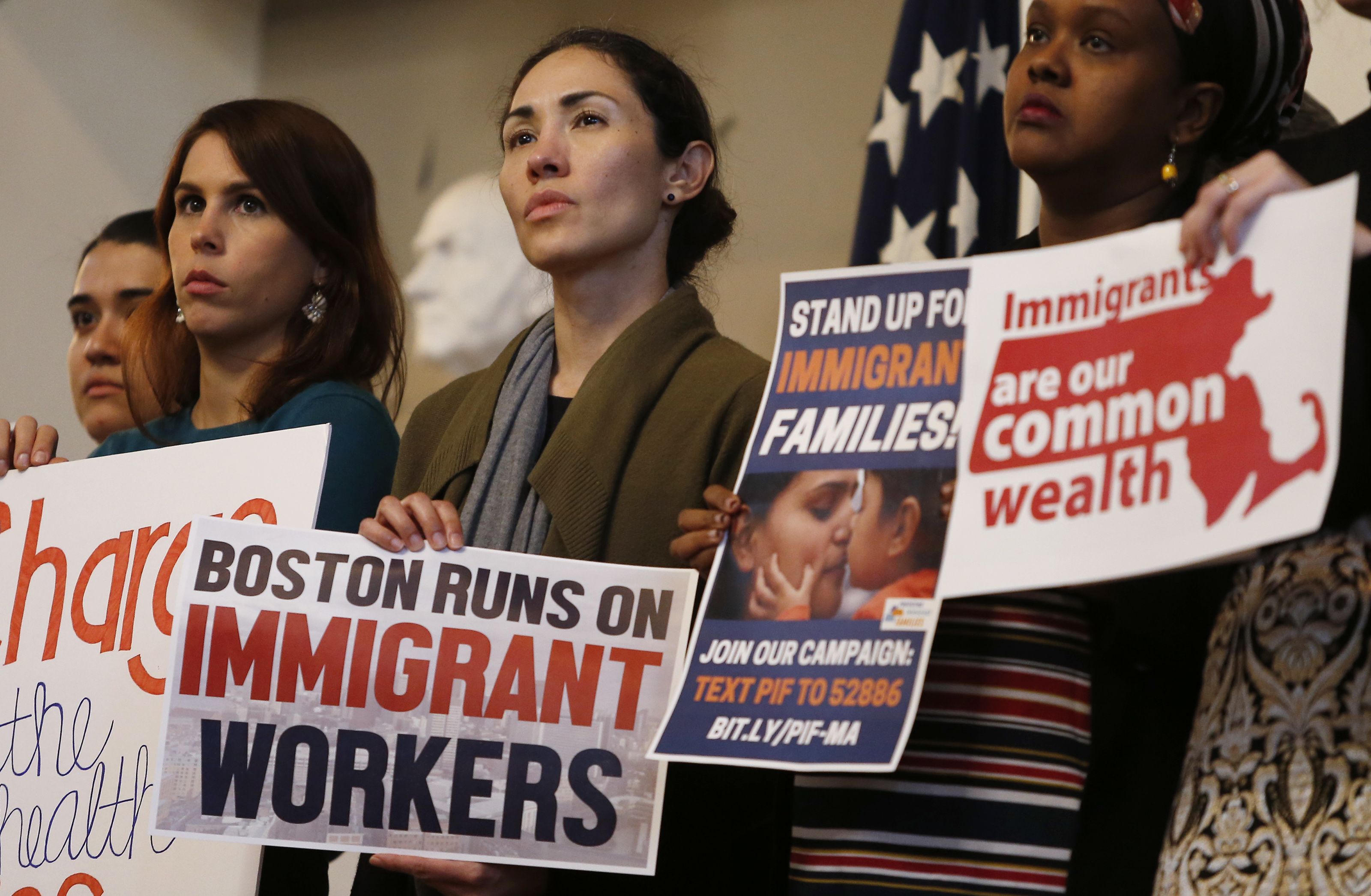Photo from cnbc.com|Jessica Rinaldi| Boston Globe| Getty images
By Jedine Daley
Copy Editor
The Trump administration’s recent update to the “public charge” rule is disgraceful, and utterly unfair to immigrants who apply to come here legally for a better life. The rule change, announced earlier this month, will make it harder for low-income immigrants to receive green cards.
The change will go into effect this October and will reinstate the “public charge” term approved by Congress in 1882. This would make it more difficult for low-income immigrants to receive green cards for permanent residency status in the United States. The term previously targeted racial minorities who depend on the government for cash benefits and public assistance.
This includes food stamps, housing assistance or medical benefits. People who come here for self development oftentimes benefit the economy in the long run through working and paying taxes, committing to low income jobs in fields that many Americans find less traditional, such as agriculture, construction and hospitality . Receiving public assistance is a boost for many of these immigrants to get on their feet, and start their lives in America.
In most cases, people who apply to immigrate to the United States from places beset by poverty, drugs and gang violence usually come here with the intention of starting over and building something for themselves. If these people are willing to come here to work and contribute to American society and economy, then the likeliness of them receiving permanent residency should not be based on their income, especially when they are already paying for the application process.
The update to the public charge rule potentially creates a leeway for caseworkers to deny immigrants green cards. This means low-income families could spend hundreds and sometimes thousands of dollars to apply to come to the U.S, and be denied entry because they are not earning a certain amount of money.
The updated version of the rule defines a “public charge” as someone who receives one or more benefits for more than 12 months in a 36-month period, and who needs a wide range of public assistance. The final rule would not apply to applicants who already have pending cases with the USCIS, but to those whose applications are submitted on or after the effective date, and those currently living in the U.S. without permanent resident status.
The U.S. promotes this “American Dream” to immigrants all over the world, claiming that by entering the country you began a process of attaining a better life. This update to the public charge rule is favoring high-income immigrants, and would single out those in need of public assistance, subjecting them to classism. To be denied entry to the U.S. would be possible due to a poor educational background, low-income or low credit score.
This will instill fear into immigrant families here in the U.S. who need public assistance, but will now be too scared to put themselves at risk with the government. Immigrants will be discouraged from going out for basic amenities such as healthcare, leading to children and other members of these families being sick and not receiving proper care.
“America is a place where people look to come and change their lives, this is where they feel like their dreams will come true,” said Shacquire Williams, 22, of Bronx N.Y, who migrated here from the Caribbean over a decade ago. “Government assistance would help a number of immigrants who like myself entered the country to have a boost at life in America.”
Acting director of U.S. Citizenship and Immigration Services Ken Cuccinelli weighed in on the update of the “public charge” rule to reporters at the White House. Cuccinelli described the change in the new rule as a way to promote self-sufficiency and success among immigrant communities.
“Public charge is now defined in a way that ensures the law is meaningfully enforced and that those who are subjected to it are self-sufficient,” he said.
Is this really a way to promote self-sufficiency? Or is our government lacking empathy by using classism to bring in only a certain type of people in the country? They are preventing others from receiving opportunities that they can only be exposed to here in the U.S. by limiting these opportunities to wealthy people, who in reality may not even really need that “boost” in life.


